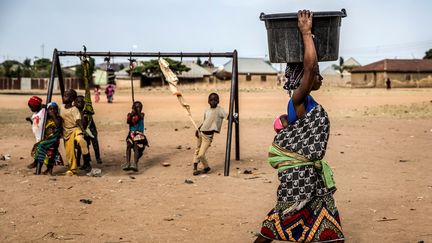Nigeria, Africa’s most populous country, is facing a grim reality as it battles its worst economic crisis in decades. The economic challenges have plunged millions into hardship, with the prices of basic commodities — from food to medicine — soaring beyond reach. As families struggle to get by, thousands in the past months took to the streets in cities like Abuja and Kano, demanding relief and better governance, while authorities respond with tear gas and force.
The causes of Nigeria’s current crisis are complex but rooted in a harsh economic landscape where inflation, a volatile exchange rate, and dependency on imported goods dominate. The removal of fuel subsidies by President Bola Tinubu, a step aimed at economic reform, has led to the doubling of fuel prices, compounding transportation costs and inflating the prices of almost everything in daily life. The situation has driven the Nigerian economy into a tailspin, pushing it down the ranks of Africa’s largest economies and threatening to drop further.
In an interview, Toyin Ogundeko, a caterer in Lagos, are feeling the brunt of these harsh economic conditions. Ogundeko, who suffers from asthma along with her son, now struggles to afford life-saving inhalers. Like many others, she faces the impossible choice of prioritizing her son’s health over her own, painfully illustrating the sacrifice many Nigerians are making just to survive. Stories like Ogundeko’s are not isolated. Across the country, the rising cost of drugs, coupled with scarce medical supplies, has placed millions in a precarious position.
Economic reform was necessary, Tinubu argues, to set the nation on a more sustainable path. However, critics and analysts point to the high costs being borne by ordinary citizens and the lack of robust local production to counterbalance import dependence. Nigeria’s reliance on imported goods, especially essential medicines and food items, has resulted in soaring prices. Emmanuel Olaogun Oladeji, a Nigerian pharmacist, notes that local pharmaceutical companies simply can’t meet the demand for basic medicines, exacerbating an already dire situation.
The economic reforms are further complicated by Nigeria’s power crisis. To address the deep-rooted challenges in the energy sector, Tinubu chose to pour funds into rejuvenating the national grid, but not without eliminating subsidies. This measure, while intended to stimulate long-term benefits, leaves the millions who rely on subsidized power at a disadvantage. Small business owners, from tailors to welders, now rely on costly generators to stay operational, making their business costs unsustainable. With power instability and rising costs, many businesses have been forced to scale back or shut down entirely, eroding income sources for countless families.
The path forward for Nigeria demands an approach that prioritizes not only structural reform but also immediate relief for the citizens suffering most acutely. This could involve targeted subsidies on essential commodities, renewed investment in local manufacturing, and a focus on infrastructure that genuinely stimulates economic growth.
The anguish felt by Nigerians is a rallying cry for urgent intervention. Without a strategy that balances reform with compassion, the country risks further social upheaval. For citizens like Ogundeko, the plea is simple yet powerful: stabilize the economy, restore affordability, and make essential resources accessible.






































Discussion about this post